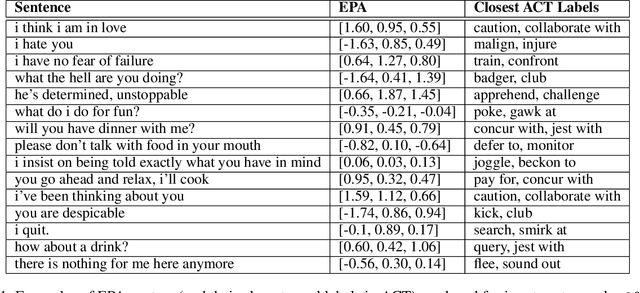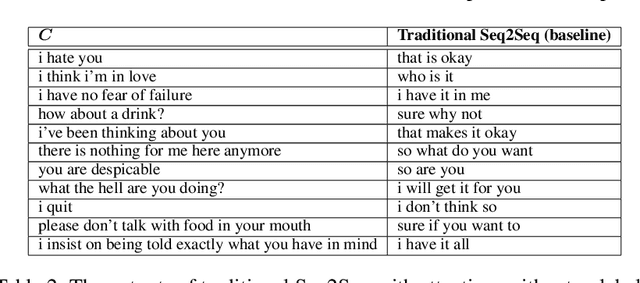Muhammad Bilal Sheikh
Generating Emotionally Aligned Responses in Dialogues using Affect Control Theory
Apr 16, 2020



Abstract:State-of-the-art neural dialogue systems excel at syntactic and semantic modelling of language, but often have a hard time establishing emotional alignment with the human interactant during a conversation. In this work, we bring Affect Control Theory (ACT), a socio-mathematical model of emotions for human-human interactions, to the neural dialogue generation setting. ACT makes predictions about how humans respond to emotional stimuli in social situations. Due to this property, ACT and its derivative probabilistic models have been successfully deployed in several applications of Human-Computer Interaction, including empathetic tutoring systems, assistive healthcare devices and two-person social dilemma games. We investigate how ACT can be used to develop affect-aware neural conversational agents, which produce emotionally aligned responses to prompts and take into consideration the affective identities of the interactants.
 Add to Chrome
Add to Chrome Add to Firefox
Add to Firefox Add to Edge
Add to Edge